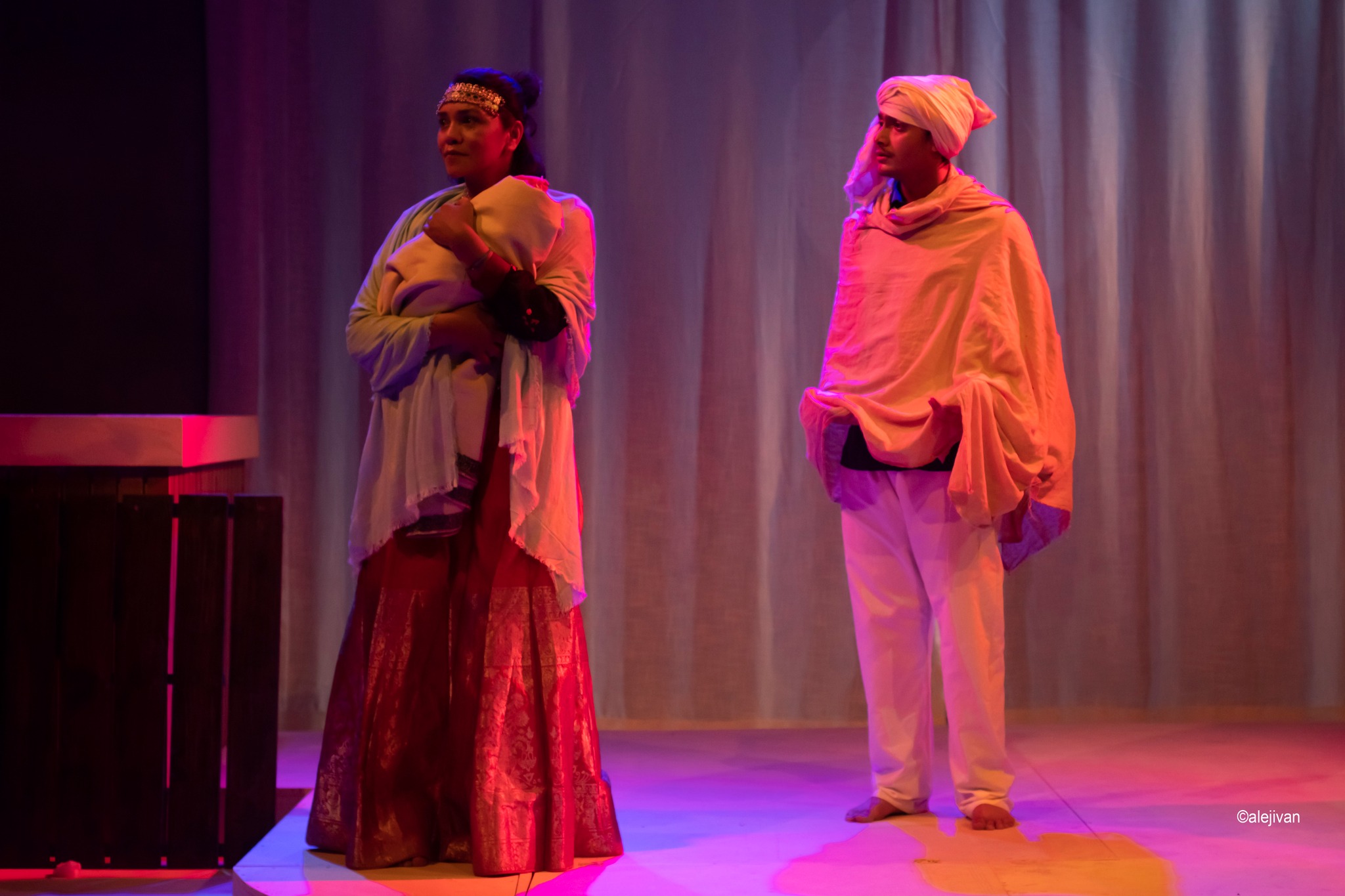Drama of loss and discovery
A stage portrayal of complex human emotion and relationship, and their fleeting natureBhumi is a 25-year-old tourist guide and Sagar, 48, is a Nepali-Canadian visiting Lumbini. The two find themselves unexpectedly paired in a guest house.
It is their intimacy and conversations that form the story behind director Ghimire Yubaraj’s play Lost and Found being staged at Shilpee Theatre till 31 May.
Their conversations are occasionally interrupted by calls from their families, providing fleeting glimpses into their personal lives, yet never telling the full story. The audience is left anticipating how this relationship will unfold.
The stage set shifts back and forth between the guesthouse cafe and the palace of Siddhartha Gautam in Lumbini.
Bhumi and Sagar exchange strong opinions on nation, philosophy, and history. Why did Siddhartha abandon his wife Yasodhara and newborn son Rahul, and leave the palace?

The story of the Buddha has resonance for the characters. Bhumi, we learn, was raised by a single mother, and Sagar is a husband and father growing distant from his own family.
Bhumi is vibrant and outspoken, her laughter is infectious yet laced with an eerie undertone that hints tension ahead. Sagar, on the other hand, is more reserved but gradually softens, absorbing some of Bhumi’s lively energy.
Bhumi is a strong and self-assured woman, unafraid to speak the truth about herself. She openly shares her sexual desires, how she enjoys intimacy and multiple partners, and declares her desire to live life on her own terms. Such a portrayal of a young woman is rarely seen on the Nepali stage and cinema.
Bhumi also suffers from multiple personality disorder, she has sudden episodes as her body trembles, and she transforms into different people, revealing hidden truths that the viewers must piece together from the intense scenes.
Two cafe servers played by Suhana Acharya and Govinda Oli are ever-present and add another dimension to the intricate layers of narrative and occasional play-within-a-play. Their presence complements the dialogue between Bhumi and Sagar with moments of humour and intrigue, but their own stories reveal personal struggles shaped by vastly different journeys of different people at different paths of life.

The play keeps the audience on its toes for the entire hour and forty-minute runtime. Transitions between scenes are swift and the acting is spot on, we are almost peeking at real life stories unfolding.
Bhumi and Sagar talk about their problems. Bhumi on her struggles with citizenship due to an absent father, and frustrated by systemic injustices. Sagar is in an unhappy marriage, navigating interpersonal conflict with his wife and the children, and the legal complexities of divorce.
People are torn by the threads of life, love, and relationships. People give up on people. And people give up on themselves. They struggle to show up for themselves in a world where personal and societal struggles make survival increasingly alienating. People then seek survival in unexpected places and personal quests.
Each problem is so uniquely tangled up to each individual and their own life story. This shapes how one sees the world and connects with, or fails to, with another. Hence, the complexity of human relationships and human emotions.
Lost and Found manages to somehow capture all of this in a story of two drifting souls seeking to find their own survival.
In his director’s note, Ghimire Yubaraj writes: ‘Why is humanity so restless in today’s world? Why do relationships, built through personal choice and care, break apart so quickly? And in the name of peace, why has humanity strayed so far from it?’
The ending and the climax collide. What begins as a light-hearted conversation between Bhumi and Sagar saying their goodbyes, quickly unfolds into an intense revelation. This ending epiphany reshapes the entire narrative, and leaves the audience stunned even after the curtains close.
Lost and Found
Till 31 May
Shilpee Theatre, Battisputali
Sun-Fri except Tue: 5:15PM
Saturday: 5:15PM, 1PM (Matinee)




